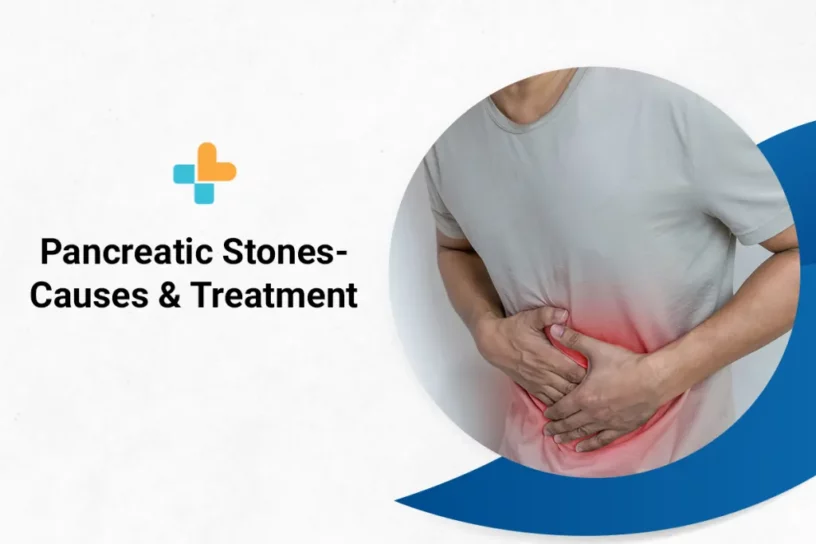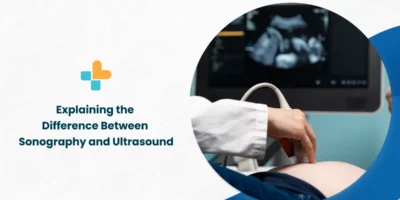The pancreas plays a crucial role in the human digestive system. When the pancreas malfunctions due to pancreatitis, pancreatic stones, or any other ailment that affects the pancreas, the body as a whole suffers greatly.
In this blog, we’ll discuss pancreatic stones, how they’re formed, and how to dissolve pancreatic stones to help you understand why it’s so vital to treat your body like a temple in the first place.
Before we get into the disorder, let’s understand the standard roles and responsibilities of the pancreas.
What is pancreas and what does it do?
The pancreas is found right underneath the stomach and produces a mix of enzymes called the pancreatic juice. When chyme (partially digested food that leaves the stomach) enters the small intestine, this juice serves to neutralise the acidity. In addition, pancreatic juice aids in the digestion of proteins, lipids, and carbs.
What are pancreatic stones?
They are often formed as a result of calcium carbonate fragments that have solidified from pancreatic enzymes and get lodged in the duct connecting the pancreas and the small intestine.
Gallstone (stones that are formed in the gallbladder) can also cause this blockage. This condition is known as Gallstone pancreatitis and it occurs when the stones escape the gallbladder and block the opening of the pancreas that leads to the small intestine’s first section (duodenum). This creates a back-up of fluid in the bile duct and the pancreatic duct. When the activated enzymes that are supposed to pass into your intestines travel back to the pancreas, it causes inflammation and irritation (pancreatitis), eventually damaging the pancreas.
What causes pancreatic stones?
They develop in patients with chronic pancreatitis and are a result of chronic injury to the pancreas. However, not all patients with pancreatitis develop stones. The following are the many reasons one could develop chronic pancreatitis.
- Hypercalcemia (High calcium levels in the blood)
- Hypertriglyceridemia (High triglyceride levels in the blood)
- Hereditary predisposition
- Auto-immune disorders
- Cystic fibrosis
- Smoking
- Gallstones
Symptoms of pancreatic stones
When the duct that connects the pancreas to the small intestine is blocked by pancreatic stones, the most common and obvious symptom is severe pain. Some of the other symptoms include:
- Fever
- Nausea
- Vomiting
- Pain that radiates to the chest or shoulder
Treatment of pancreatic stones
In the past, the most common mode of treatment to remove pancreatic stones was through surgery. However, now with the advancement of technology, pancreatic stones can be managed through endoscopy, or extracorporeal shock wave lithotripsy. Pancreatic stones that are blocking the pancreatic duct require immediate medical attention that could result in surgery.
If you are someone suffering from chronic pancreatitis always keep an eye for signs and symptoms of pancreatic stones while also undergoing regular check-ups. If these stones are left untreated, they will lead to severe complications that include infection and tissue death that are fatal.
If you are looking for specialized Gastroenterologists to diagnose and treat your symptoms, reach out toAyu Health ? the best multispeciality hospital In Bangalore. Equipped with specialised doctors and advanced technology,Ayu Health can provide the best treatment of pancreatic stones. Call us at +91 – 6366 100 800 for a consultation or visit our website to book an appointment.
Our Hospital Locations
Gastroenterology Surgery Hospitals in Chandigarh | Gastroenterology Surgery Hospitals in Bangalore | Gastroenterology Surgery Hospitals in Jaipur | Gastroenterology Surgery Hospitals in NCR | Gastroenterology Surgery Hospitals in Hyderabad
Our Doctors
Gastroenterology Surgery Doctors in Chandigarh | Gastroenterology Surgery Doctors in Bangalore | Gastroenterology Surgery Doctors in Jaipur | Gastroenterology Surgery Doctors in NCR | Gastroenterology Surgery Doctors in Hyderabad
About the Author

Dr. Suresh Babu D
Dr. Suresh Babu D is a renowned Internal Medicine Specialist currently practicing at Ayu Health, Bangalore. He is a Specialist in GastroIntestinal Surgeon, Laparoscopic Surgeon, and Colorectal Surgeon. Having been trained in one of the largest super-specialty centre, have vast experience in managing gastrointestinal and hepato-pancreato-biliary diseases




